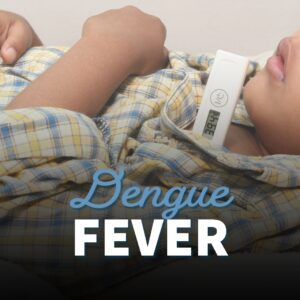Whooping Cough: Symptoms, Complications and Treatment
 Babies and toddlers are susceptible to many different illnesses, building their immune systems naturally as they grow, as well as with the help of vaccinations. However, babies who are too young for immunizations or are unvaccinated either by parental choice or due to health reasons are left at risk for serious illnesses and diseases, requiring extreme caution to avoid exposure. One such illness is pertussis, otherwise known as whooping cough.
Babies and toddlers are susceptible to many different illnesses, building their immune systems naturally as they grow, as well as with the help of vaccinations. However, babies who are too young for immunizations or are unvaccinated either by parental choice or due to health reasons are left at risk for serious illnesses and diseases, requiring extreme caution to avoid exposure. One such illness is pertussis, otherwise known as whooping cough.
What is whooping cough, and what are the symptoms?
Whooping cough is a respiratory tract infection that causes a “severe hacking cough followed by a high-pitched intake of breath that sounds like a ‘whoop.’” The infection is highly contagious and mostly affects children who have not completed the full round of vaccinations or teenagers and adults whose vaccination protection has lapsed. The infection is particularly dangerous for infants as, although rare, may lead to death. At the beginning of the illness, it can be difficult to recognize as it begins much like a common cold. Many people will experience:
- Runny nose
- Nasal congestion
- Red, watery eyes
- Fever
- Cough
After a week or two, the symptoms will become worse, with thick mucus accumulating in the airways, leading to uncontrollable coughing that may:
- Induce vomiting
- Result in a red or blue facial appearance
- Cause extreme fatigue
- Be followed by a high-pitched “whoop” sound when inhaling
These symptoms are not necessarily the same for everyone. The “whoop” may never be present, but will just be a persistent, hacking cough in adults and adolescents. This is why it is vital that if you are experiencing cold-like symptoms, or any illness symptoms, you do not hold or touch an infant to avoid exposure. With infants, they may not cough at all if they are very small. You may observe that they are struggling to breathe or may stop breathing temporarily.
Certain complications are possible with whooping cough. Teens and adults typically will recover from the infection without issues, but may experience other issues that are a direct result of the intense coughing, such as:
- Bruised or cracked ribs
- Abdominal hernias
- Broken blood vessels in the skin or whites of the eyes
However, for infants, particularly those 6 months of age or under, are susceptible to very serious complications due to their smaller airways. These may include:
- Pneumonia
- Slowed or stopped breathing
- Dehydration or weight loss due to difficulty feeding
- Seizures
- Brain damage
Complications can be life-threatening for infants, and an infection with whooping cough will most likely require hospital treatment.
How to prevent and treat whooping cough
The best defense against whooping cough is to receive the recommended vaccinations. The recommended schedule for the vaccine currently consists of five total injections, with one each at:
- 2 months
- 4 months
- 6 months
- 15 to 18 months
- 4 to 6 years
A booster shot should also be received around the age of 11. For adults, it is important to receive the vaccine to prevent transmitting to infants, especially if you have a friend or family member who is due to have a baby soon and you’d like to visit and hold the new little bundle. If you are currently pregnant, it is recommended that you receive the vaccine between 27 and 36 weeks, as this will provide you with protection as well as potentially pass some protection to your baby to keep them safe for the first few months of life.
If an adult or older child has been diagnosed with whooping cough, some antibiotics may be prescribed to kill the bacteria, but not much can be done to relieve the cough, unfortunately. Treatment may be done at home by getting plenty of rest and fluids; eating smaller meals to avoid vomiting; avoid smoke and other airborne irritants; and preventing spreading the infection to others by covering your cough and wearing a mask if around others. Infants who are diagnosed will most likely require hospitalization to prevent or treat any complications that occur.
If you believe you may have whooping cough, or if you need to get up-to-date on your vaccination, visit us today.




